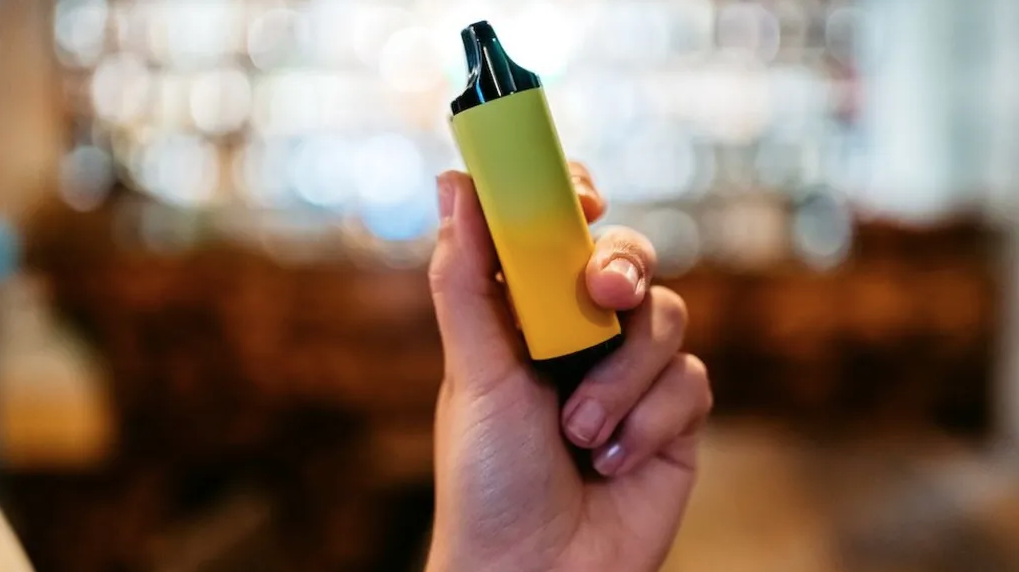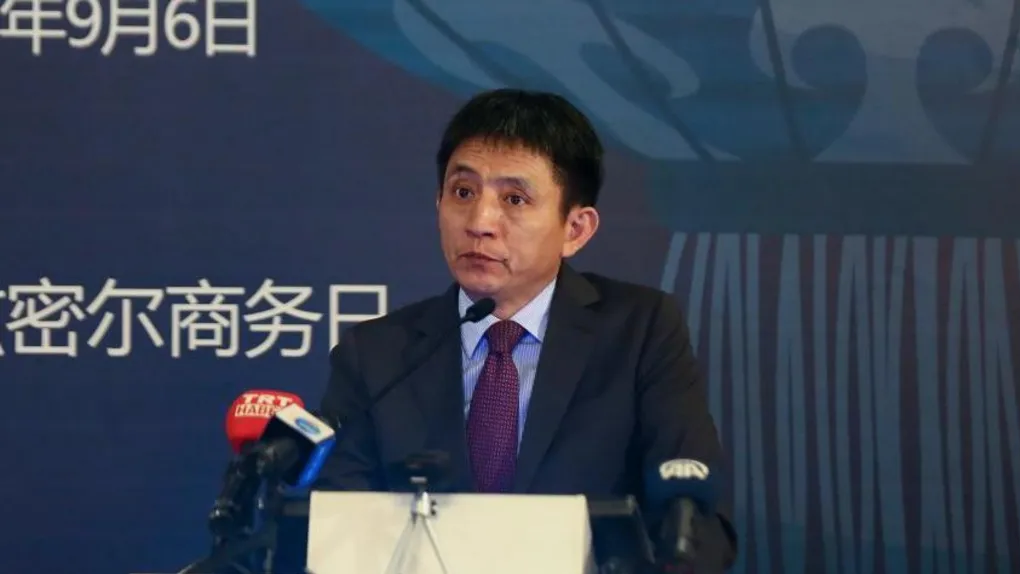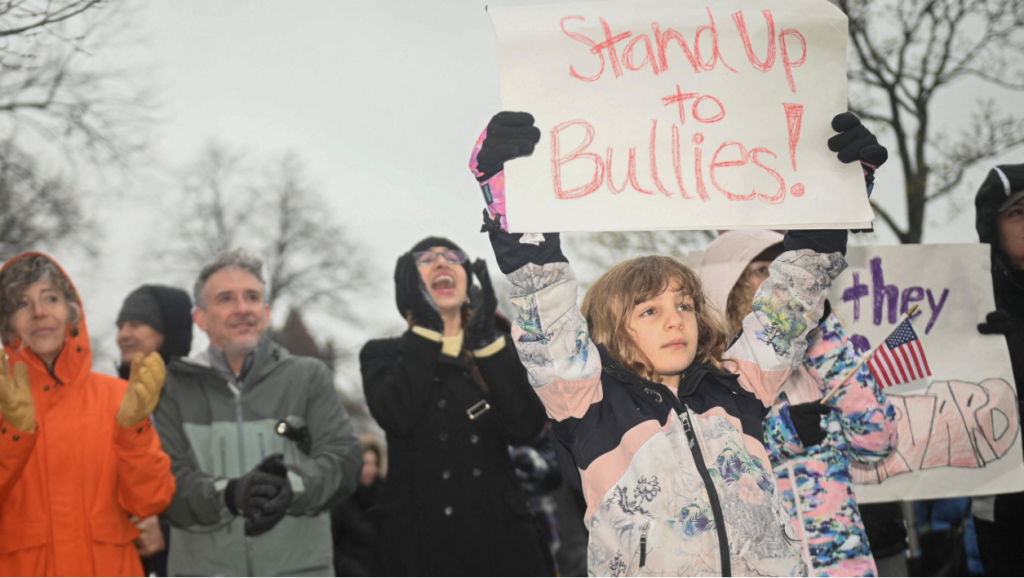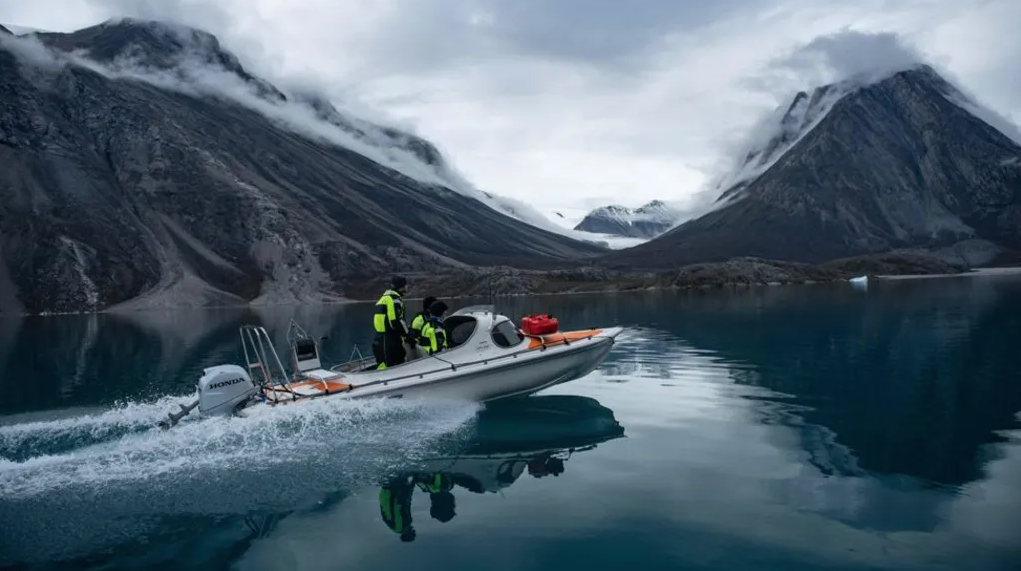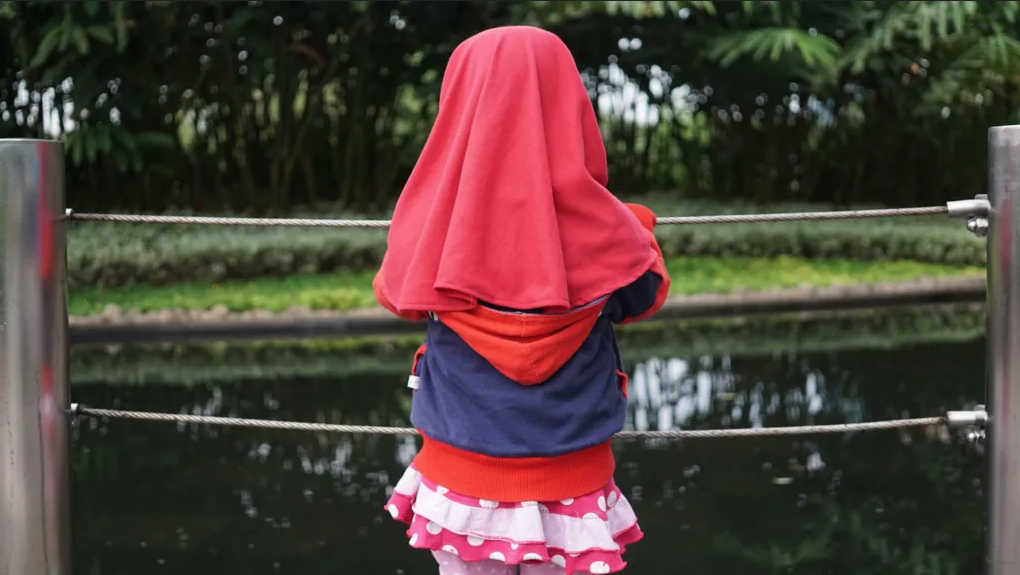Former Peruvian leader Alberto Fujimori dies at 86
Written by BBC on September 12, 2024
Peru’s former President Alberto Fujimori, who was convicted of human rights abuses and corruption, has died aged 86, his daughter has confirmed.
Fujimori governed Peru between 1990 and 2000 before being forced from office amid allegations of corruption.
His tough stance against a left-wing guerrilla insurgency while president also brought allegations of human rights abuses.
But his supporters praise him for defeating the rebels at a time when they looked likely to seize power.
He fled the country but was subsequently arrested and extradited, before being convicted and jailed.
His daughter Keiko Fujimori posted on social media to say the former president had died “after a long battle with cancer”.
Fujimori’s doctor confirmed he had died of “tongue cancer”.
The former president was convicted in a number of cases including corruption, abuse of power and being behind two death squad massacres in the early 1990s.
Last December Fujimori was released from Lima’s Barbadillo prison having served more than 15 years of a 25-year prison sentence.
Peru’s constitutional court had reinstated a presidential pardon issued six years previously.
Supporters of Fujimori began gathering outside his house as soon as his daughter posted the announcement of his death.
“After a long battle with cancer, our father, Alberto Fujimori, has just departed to meet the Lord,” his children Keiko, Hiro, Sachie and Kenji said in a joint statement.
“We ask those who loved him to join us in praying for the eternal rest of his soul.
“Thank you for so much, Dad!”
Fujimori’s doctor Jose Carlos Gutierrez said the former president had been diagnosed with tongue cancer earlier this year and had died “of complications from the illness”.
“The immunological treatment is very good but it has side effects,” Dr Gutierrez said.
“As a result of these side effects, he [Fujimori] had breathing problems two days ago. He started with shortness of breath, we administered oxygen. The shortness of breath got worse, he started to bloat.
“Finally, yesterday night, he was unconscious. And finally, today engineer Fujimori died around 18:00 [23:00 GMT].”
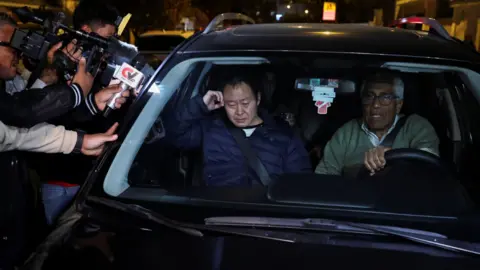
Kenji Fujimori, son of Peruvian former President Alberto Fujimori, leaves his sister Keiko Fujimori’s house, where their father lived until his death.
For Fujimori’s supporters, he was the man who saved Peru from a brutal Maoist rebel group, the Sendero Luminoso (Shining Path), and who put the economy back on track after skyrocketing inflation.
But for thousands of innocent victims of the conflict, Fujimori was an authoritarian figure and a brutal leader.
The son of Japanese immigrants, Fujimori ruled with an iron fist, his time in office marked by dramatic twists and turns.
He was first elected president in 1990, when the rebel insurgency was at its height.
Two years later, Fujimori closed Congress, accusing lawmakers of preventing him from taking the measures the country needed.
His government managed to defeat the rebel group but at a very high human cost.
His authoritarian government’s crackdown resulted in the deaths of an estimated 69,000 people.
Fujimori was eventually convicted of human rights violations that targeted mainly poor indigenous communities.
Fujimori governed Peru until he was forced from office amid allegations of corruption. He sought asylum in Japan before returning to Chile, where he was arrested.
Today his daughter Keiko is the leader of Peru’s biggest political party.
She lost the last presidential elections by a narrow margin and has already announced she will run again in 2026.
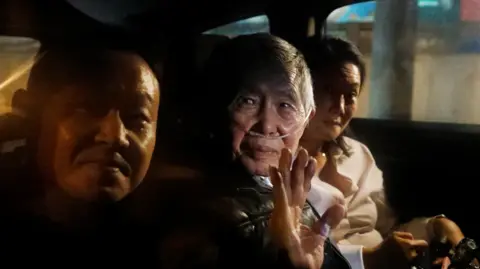
Alberto Fujimori departed the Barbadillo prison in Lima with his daughter Keiko in December.
